The Access to Justice Centre for Excellence at the University of Victoria Faculty of Law (ACE) and McGill University’s Faculty of Law in collaboration with the Canadian Forum on Civil Justice (CFCJ) and CREATE Justice at the University of Saskatchewan College of Law will be hosting a hybrid workshop on Person-Centred Justice, Change, and Connection at McGill University’s Faculty of Law from May 24-25, 2024 (the 2024 PCJ Workshop). Proposals are welcome from researchers, graduate students, and practitioners on themes related to access to justice and person-centred justice, including works and projects which challenge or expand understandings of the field through empirical, critical, or pluralistic lenses. The deadline to submit proposals is January 19, 2024.
The 2024 PCJ Workshop will build on the excellent discussions and scholarly exchanges that took place at the inaugural Person-Centred Justice workshop held at York University on May 29, 2023 and subsequent (forthcoming 2024) contributions to a special issue of the Canadian Journal of Law and Society on Person-Centred Justice. The workshop will be an opportunity to build connections between scholars, researchers, practitioners and other access to justice stakeholders across Canada; it will also facilitate the development of scholarly works for publication in journals that accept submissions on the themes of access to justice and person-centred justice such as the Windsor Yearbook of Access to Justice (see submission guidelines). Finally, the 2024 PCJ Workshop will also support preparation for the upcoming International Access to Justice Forum to be held in Toronto in fall of 2024 in a friendly, collaborative and supportive atmosphere.
The 2024 PCJ Workshop will be held in a fully hybrid format, with a focus on virtual presenters on May 24th and in-person presenters on May 25th. Presenters will be arranged into panels based on themes that emerge from submissions to encourage new connections. In support of the 2024 PCJ Workshop, ACE and its partners are seeking the support of SSHRC through a Connections Grant. If ACE and its partners are successful in gaining Connections Grant funding, financial support will be available to:
- Provide travel support funding for participants that express a need for funding to attend in- person, such as graduate students and practitioners – priority will be given to those who apply by January 10, 2024;
- Provide simultaneous and documentary English/French translation to support bilingual proceedings at the 2024 PCJ Workshop; and
- Provide guidance and support for the publication and dissemination of research through avenues such as blog posts, social media channels, and scholarly journals.
Those interested in submitting an abstract (maximum 250 words) are asked to fill out the following online form by January 19, 2024: English Version | Version française
Inquiries about the event can be directed to: kaitlyncumming@gmail.com
Download a copy of the Call for Proposals here: https://ajrn.org/wp-content/uploads/2023/12/call-for-proposals-appel-a-participation-2024-pcj-workshop.pdf.
_____________________________________________
Appel à propositions
Atelier hybride sur la justice axée sur la personne, le changement et les connexions Faculté de droit de l’Université McGill | 24 et 25 mai 2024
Le Centre d’excellence pour l’accès à la justice de la Faculté de droit de l’Université de Victoria (ACE) et la Faculté de droit de l’Université McGill en collaboration avec le Forum canadien sur la justice civile (FCJC) et CREATE Justice du Collège de droit de l’Université de Saskatchewan, a le plaisir d’annoncer qu’il organisera un atelier hybride sur la justice axée sur la personne, le changement et les connexions à la Faculté de droit de l’Université McGill les 24 et 25 mai 2024 (l’atelier JAP 2024). Nous invitons les chercheuses et chercheurs, les étudiant·es aux cycles supérieurs et les praticien·ne·s à soumettre des propositions sur des thèmes liés à l’accès à la justice et à la justice axée sur la personne, y compris des travaux et des projets qui remettent en question ou élargissent la compréhension du domaine à l’aide d’approches empiriques, critiques ou pluralistes. La date limite de soumission des propositions est le 19 janvier 2024.
L’atelier JAP 2024 construira sur le fondement des excellentes discussions et des échanges scientifiques qui ont eu lieu lors de l’atelier inaugural sur la justice axée sur la personne qui s’est tenu à l’Université York le 29 mai 2023 et sur les contributions ultérieures (dont la publication est à venir en 2024) à un numéro spécial de la Revue canadienne droit et société portant sur la justice axée sur la personne. L’atelier sera l’occasion d’établir des liens entre les universitaires, les chercheuses et chercheurs, les praticien·ne·s et d’autres acteurs de l’accès à la justice de partout au Canada; il facilitera également l’élaboration de travaux universitaires destinés à être publiés dans des revues qui acceptent des articles sur les thèmes de l’accès à la justice et de la justice axée sur la personne, telles que le Recueil annuel de Windsor d’accès à la justice (voir leurs lignes directrices pour les soumissions). Enfin, l’atelier JAP 2024 soutiendra également, dans une atmosphère amicale, de collaboration et de soutien, les préparatifs en vue du Forum international sur l’accès à la justice qui se tiendra à Toronto en automne 2024.
L’atelier JAP 2024 se déroulera de façon entièrement hybride, avec un accent sur les présentateurs virtuels le 24 mai et sur les présentateurs en personne le 25 mai. Les présentateurs seront répartis en panels en fonction des thèmes qui émergeront des soumissions afin d’encourager de nouvelles connexions. Pour soutenir l’atelier JAP 2024, ACE et ses partenaires sollicitent présentement le soutien du CRSH par le biais d’une Subvention Connexion. Si ACE et ses partenaires réussissent à obtenir ce financement, un soutien financier sera disponible pour :
- Fournir du financement pour les déplacements des participant·es qui en expriment le besoin pour assister à l’atelier en personne, tels que les étudiant·es aux cycles supérieurs et les praticien·ne·s – La priorité sera donnée à ceux qui auront déposé leur soumission avant le 10 janvier 2024;
- Fournir une traduction simultanée et documentaire de l’anglais au français et vice-versa, afin de permettre que l’atelier JAP 2024 se déroule dans les deux langues; et
- Fournir des conseils aux participant·es en soutenant la publication et la diffusion de la recherche par des moyens tels que des articles de blog, des médias sociaux et des revues académiques.
Les personnes intéressées à soumettre un résumé de leur contribution (250 mots maximum) sont priées de remplir le formulaire électronique suivant avant le 19 janvier 2024 : Version française | English Version
Les questions concernant l’événement peuvent être adressées à: kaitlyncumming@gmail.com










